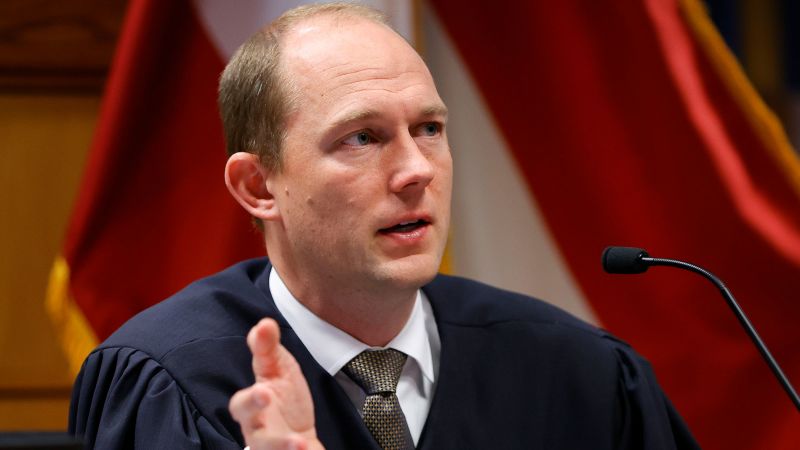
Judge dismisses some Trump Georgia election subversion charges but leaves most of the case intact
CNN
The presiding judge in the Georgia criminal case against Donald Trump and his allies has thrown out some of the charges against the former president and several of his co-defendants.
The presiding judge in the Georgia criminal case against Donald Trump and his allies has thrown out some of the charges against the former president and several of his co-defendants. The partial dismissal by Georgia Superior Court Judge Scott McAfee leaves most of the sprawling racketeering indictment intact. McAfee ruled that six charges in the 41-count indictment related to Trump and some co-defendants allegedly soliciting the violation of oath by a public officer lacked the required detail about what underlying crime the defendants were soliciting. Trump was named in three of the counts specifically, meaning the former president is now facing 88 charges over the four criminal indictments in Georgia, New York, Washington, DC, and Florida. Prosecutors alleged that Trump and some of his co-defendants violated the law by pressuring members of the Georgia legislature to unlawfully appoint presidential electors. They also brought the charge against Trump and his ex-White House chief of staff Mark Meadows for the January 2021 phone call with Georgia Secretary of State Brad Raffensperger in which Trump asked Raffensperger to “find” the votes that would win him the state. “The Court’s concern is less that the State has failed to allege sufficient conduct of the Defendants – in fact it has alleged an abundance. However, the lack of detail concerning an essential legal element is, in the undersigned’s opinion, fatal,” McAfee wrote in Wednesday’s order.

Why it took Seneca leader and Civil War general Ely S. Parker 176 years to be admitted to the NY bar
Ely S. Parker, a Tonawanda Seneca from western New York, never took no for an answer.

After recent high-profile use of force encounters, federal officials have seemingly rushed to offer full-throated defenses of immigration agents, raising questions about whether previously enshrined mechanisms meant to hold law enforcement accountable for wrongdoing have been all but abandoned in President Donald Trump’s second term.

Trump likely to face long military commitment and chaos if he ousts Maduro in Venezuela, experts say
President Donald Trump has said he believes Venezuelan President Nicolas Maduro’s days are numbered, and that land strikes inside Venezuela are possible.

President Donald Trump announced Friday he is officially rescinding his endorsement of Rep. Marjorie Taylor Greene and attacked her in personal terms, while the congresswoman countered that Trump was trying to make an example of her to prevent the release of files on convicted sex offender Jeffrey Epstein.





















 Run 3 Space | Play Space Running Game
Run 3 Space | Play Space Running Game Traffic Jam 3D | Online Racing Game
Traffic Jam 3D | Online Racing Game Duck Hunt | Play Old Classic Game
Duck Hunt | Play Old Classic Game







